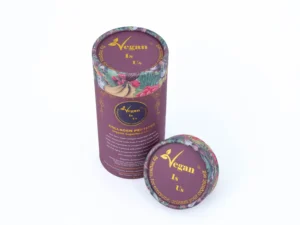What Are Vitamins?
Vitamins are organic compounds that are essential for maintaining normal physiological functions, including growth, metabolism, and overall health. They are required in small quantities but play critical roles in processes such as energy production, immune function, and cellular repair. Unlike macronutrients (carbohydrates, proteins, and fats), vitamins do not provide energy directly. Instead, they act as coenzymes or precursors for enzymes, facilitating biochemical reactions that sustain life.
Vitamins are categorised into two groups based on their solubility: fat-soluble and water-soluble. This classification determines how they are absorbed, stored, and excreted by the body. Understanding these differences is crucial for ensuring adequate intake and avoiding deficiencies or toxicities.
Fat-Soluble vs. Water-Soluble Vitamins
- Fat-Soluble Vitamins:
- Vitamins A, D, E, and K.
- These vitamins are absorbed through the intestinal tract with the help of dietary fats. They are stored in the liver and fatty tissues for extended periods, ranging from days to months.
- Because they are stored in the body, excessive intake of fat-soluble vitamins can lead to toxicity. For example, too much vitamin A can cause hypervitaminosis A, leading to symptoms such as dizziness, nausea, and even liver damage.
- Fat-soluble vitamins are particularly important for maintaining vision (vitamin A), bone health (vitamin D), antioxidant protection (vitamin E), and blood clotting (vitamin K).
- Water-Soluble Vitamins:
- Vitamin C and the B-complex vitamins (B1, B2, B3, B5, B6, B7, B9, B12).
- These vitamins are not stored in the body to a significant extent. Excess amounts are excreted through urine, which means they require regular dietary intake to maintain adequate levels.
- Water-soluble vitamins are generally less likely to cause toxicity, but deficiencies can occur more quickly if intake is insufficient. For example, a lack of vitamin C can lead to scurvy, while insufficient vitamin B12 can cause anaemia and neurological damage.
- These vitamins play vital roles in energy metabolism, immune function, and the synthesis of DNA and red blood cells.
The 13 Essential Vitamins: Functions, Deficiency Risks, and Plant-Based Sources
Below is a comprehensive overview of the 13 essential vitamins, including their roles, deficiency symptoms, and exclusively plant-based and vegan dietary sources.
1. Vitamin A
- Function: Vitamin A is essential for maintaining healthy vision, particularly in low-light conditions. It also supports immune function, skin health, and cellular communication. The active form of vitamin A, retinol, is crucial for the proper functioning of the retina in the eye.
- Deficiency: A deficiency in vitamin A can lead to night blindness, dry eyes (xerophthalmia), and an increased susceptibility to infections. In severe cases, it can cause complete blindness.
- Plant-Based Sources: Vitamin A is found in plant foods as provitamin A carotenoids, which the body converts into retinol. Excellent sources include carrots, sweet potatoes, spinach, kale, pumpkin, red bell peppers, mangoes, and fortified plant-based milks.
2. Vitamin B1 (Thiamine)
- Function: Thiamine is vital for converting carbohydrates into energy. It also plays a role in nerve function and the synthesis of neurotransmitters.
- Deficiency: A deficiency in thiamine can lead to beriberi, a condition characterised by muscle weakness, fatigue, and neurological issues. In severe cases, it can cause heart failure.
- Plant-Based Sources: Whole grains (such as brown rice and oats), legumes (like lentils and black beans), nuts, flaxseeds, nutritional yeast, and fortified cereals are excellent sources of thiamine.
3. Vitamin B2 (Riboflavin)
- Function: Riboflavin is involved in energy production, cellular function, and the metabolism of fats, drugs, and steroids. It also acts as an antioxidant, helping to protect cells from oxidative damage.
- Deficiency: A deficiency in riboflavin can cause cracked lips, sore throat, and skin disorders such as dermatitis. It may also lead to anaemia and eye problems.
- Plant-Based Sources: Almonds, spinach,spirulina, fortified cereals, mushrooms, and nutritional yeast are rich in riboflavin.
4. Vitamin B3 (Niacin)
- Function: Niacin is essential for converting food into energy, DNA repair, and the production of stress and sex hormones. It also supports skin health and nervous system function.
- Deficiency: A deficiency in niacin can lead to pellagra, a condition characterised by the “three Ds”: diarrhoea, dermatitis, and dementia. If left untreated, it can be fatal.
- Plant-Based Sources: Whole grains (such as wheat and barley), legumes, peanuts,moringa, mushrooms, and fortified cereals are good sources of niacin.
5. Vitamin B5 (Pantothenic Acid)
- Function: Pantothenic acid is crucial for synthesising coenzyme A, which is involved in the metabolism of carbohydrates, proteins, and fats. It also plays a role in the production of hormones and cholesterol.
- Deficiency: Deficiency is rare but may cause fatigue, numbness, and irritability.
- Plant-Based Sources: Avocados, whole grains, mushrooms, legumes, and sweet potatoes are excellent sources of pantothenic acid.
6. Vitamin B6 (Pyridoxine)
- Function: Vitamin B6 is involved in brain development, the synthesis of neurotransmitters (such as serotonin and dopamine), and the formation of red blood cells. It also helps regulate homocysteine levels, which are linked to heart disease.
- Deficiency: A deficiency in vitamin B6 can lead to anaemia, depression, and weakened immunity. It may also cause skin disorders such as dermatitis.
- Plant-Based Sources: Chickpeas, bananas, potatoes, pistachios, and fortified cereals are rich in vitamin B6.
7. Vitamin B7 (Biotin)
- Function: Biotin is essential for the metabolism of carbohydrates, fats, and proteins. It also supports healthy hair, skin, and nails.
- Deficiency: A deficiency in biotin can cause hair loss, skin rashes, and brittle nails. It is rare but may occur in individuals with certain genetic disorders or those consuming large amounts of raw egg whites, which contain a protein that binds biotin.
- Plant-Based Sources: Almonds, walnuts, sweet potatoes, spinach, and nutritional yeast are good sources of biotin.
8. Vitamin B9 (Folate/Folic Acid)
- Function: Folate is crucial for DNA synthesis, cell division, and the production of red blood cells. It is especially important during pregnancy for fetal development and the prevention of neural tube defects.
- Deficiency: A deficiency in folate can lead to anaemia, fatigue, and an increased risk of neural tube defects in developing fetuses.
- Plant-Based Sources: Leafy greens (such as spinach and kale), legumes, avocados,beetroot, citrus fruits, and fortified cereals are excellent sources of folate.
9. Vitamin B12 (Cobalamin)
- Function: Vitamin B12 is essential for nerve function, the production of DNA and red blood cells, and the metabolism of homocysteine. It is particularly important for maintaining the health of the nervous system.
- Deficiency: A deficiency in vitamin B12 can lead to megaloblastic anaemia, fatigue, and neurological damage. Long-term deficiency can cause irreversible nerve damage.
- Plant-Based Sources: Vitamin B12 is not naturally found in plant foods, so vegans must rely on fortified foods such as nutritional yeast, plant-based milks, and supplements.
10. Vitamin C (Ascorbic Acid)
- Function: Vitamin C is a powerful antioxidant that supports the immune system, promotes collagen synthesis, and enhances iron absorption. It also plays a role in wound healing and the maintenance of healthy skin, bones, and blood vessels.
- Deficiency: A deficiency in vitamin C can lead to scurvy, a condition characterised by bleeding gums, poor wound healing, and fatigue.
- Plant-Based Sources: Citrus fruits (such as oranges and lemons), strawberries, bell peppers, broccoli, Brussels sprouts, and kiwi are rich in vitamin C.
11. Vitamin D
- Function: Vitamin D promotes calcium absorption, supporting bone health and immune function. It also plays a role in cell growth and inflammation regulation.
- Deficiency: A deficiency in vitamin D can lead to rickets in children (characterised by soft, weak bones) and osteomalacia in adults (causing bone pain and muscle weakness).
- Plant-Based Sources: Vitamin D is primarily obtained through sun exposure, but fortified plant-based milks and mushrooms exposed to UV light can provide small amounts. Supplements are often recommended, especially in regions with limited sunlight.
12. Vitamin E
- Function: Vitamin E is a potent antioxidant that protects cells from oxidative damage caused by free radicals. It also supports immune function and skin health.
- Deficiency: Deficiency is rare but may cause nerve and muscle damage, leading to symptoms such as weakness and vision problems.
- Plant-Based Sources: Almonds, sunflower seeds, spinach, avocados, rosehip, and vegetable oils (such as sunflower and safflower oil) are excellent sources of vitamin E.
13. Vitamin K
- Function: Vitamin K is essential for blood clotting and bone health. It helps synthesise proteins required for blood coagulation and supports the maintenance of strong bones.
- Deficiency: A deficiency in vitamin K can lead to excessive bleeding and bruising. It may also increase the risk of osteoporosis.
- Plant-Based Sources: Leafy greens (such as kale and spinach), broccoli, wheat grass, Brussels sprouts, fermented soy (natto), and vegetable oils are rich in vitamin K.
Vitamin Supplements: When Are They Necessary?
While a balanced, varied plant-based diet can provide most vitamins, supplements may be necessary in specific circumstances, such as:
- Vitamin B12: Essential for vegans, as it is not naturally found in plant foods. Deficiency can lead to severe neurological and haematological issues.
- Vitamin D: Recommended for individuals with limited sun exposure, particularly in winter months or northern latitudes.
- Pregnancy: Folic acid supplements are often advised to prevent neural tube defects in the developing fetus.
- Health Conditions: Certain medical conditions (e.g., Crohn’s disease, pernicious anaemia) or medications (e.g., proton pump inhibitors) may increase vitamin needs.
It is important to consult a healthcare provider before starting supplements to avoid excessive intake, which can lead to toxicity, particularly with fat-soluble vitamins.
Why They Matter
Vitamins are indispensable for maintaining health and preventing deficiencies. A well-planned plant-based diet rich in fruits, vegetables, whole grains, legumes, nuts, and seeds can provide all the necessary vitamins. However, fortified foods and supplements, particularly for vitamins B12 and D, can help address potential gaps in vegan diets. Prioritising whole foods and consulting a healthcare professional can ensure optimal nutrient intake.
By understanding the roles and plant-based sources of each vitamin, individuals can make informed dietary choices to support optimal health and well-being. Whether you are following a vegan lifestyle or simply aiming to incorporate more plant-based foods into your diet, paying attention to your vitamin intake is a crucial step towards achieving long-term health. Explore our premium selection of organic blends, packed with essential nutrients like Vitamin E, D, B, and K. Visit Veganisus UK and discover the power of plant-based nutrition for your health and wellness journey.







